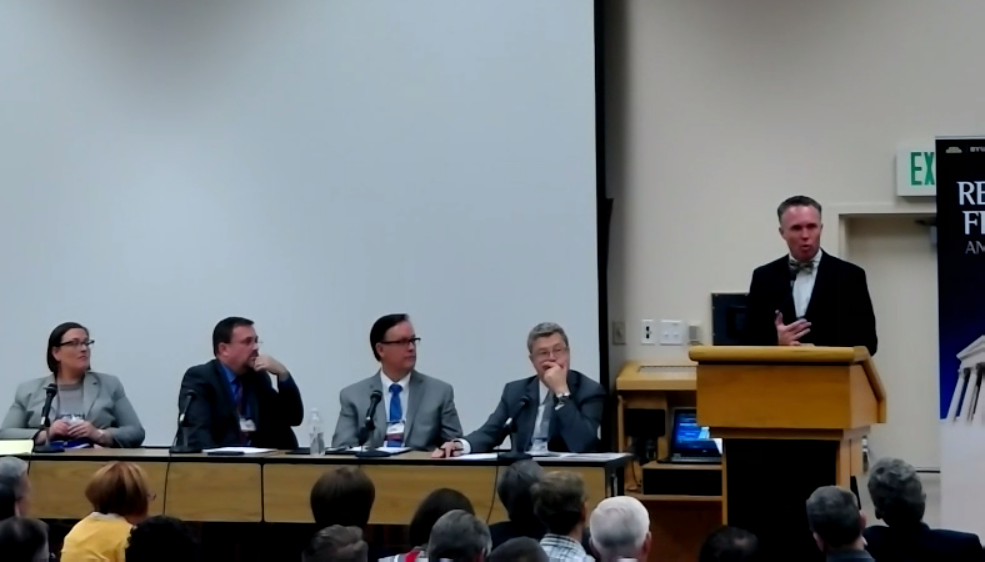
BYU’s Religious Freedom Annual Review hosted a panel titled “Preserving Religious Diversity in Higher Education” on July 7. The panel featured four defenders of religious freedom of varying faiths.
John Jackson, Patrick J. Reilly, Shapri D. LoMaglio and Steven M. Sandberg each addressed the audience in the general session Friday morning.
After a brief introduction, John Jackson, President of William Jessup University, an evangelical Christian College in Northern California, recalled how all but one Ivy League school in the United States began as a religious institution. Using his experiences in California to represent the larger trends of religious freedom, Jackson discussed Bill SP1146, legislation which would have regulated religious higher education and blocked scholarships through such institutions had it been passed.
Jackson said the bill did not pass until severe amendments, as called upon by the religious community and other opposing parties, were included. He also expressed his dismay towards the fact the American Civil Liberties Union helped oppose the bill only because they believed it did not go far enough.
“I live daily with the tension of these issues. I know first hand the pains that come from a lack of clarity on these issues,” Jackson said
He concluded with a call to be faithful to the gospel of Jesus Christ despite opposition.
Patrick Riley, the president of the Cardinal Newman Society, began his remarks similarly but emphasized how religious freedom is centered on truth, a need proceeding any law or society.
Riley said his greatest concern is the threats within institutions such as lawsuits from students or faculty directed towards standards. He said clear policies rooted in religious belief were the best way to counter such threats.
“Too often we look to the courts without preparing,” Riley said.
He called upon religious institutions to be consistent with their policies and knowledgeable about the law.
Shapri D. LoMaglio, Vice President for Government and External Relations at the Council for Christian Colleges, followed and stressed the need for Americans to start at the core of religious freedom.
“The ideas that are under attack can be very foreign to some people. We need to start right at the beginning about what religious freedom means,” LoMaglio said.
She shared anecdotes about religious political figures such as Bernie Sanders standing up for their beliefs, sometimes having to dispel misconceptions, which provided an introduction for the final speaker, Steven M. Sandberg.
Sandberg joined BYU’s Office of the General Council in 2006 and has a Juris Doctor from Columbia University. He entitled his remarks “A Call For Courage” and described the tenacity and work of the faithful that will be required in the coming years.
“Connecting human being to human being is the only way that we get through this. Connecting with like-minded people and also those who are different than us,” Sandberg said.
Sandberg said these connections are key aspects in promoting religious freedom, as it is difficult to hate another group once acquainted with individual human beings that are a part of it.
While all panel members held different beliefs, they praised the amiable tone of the Religious Freedom Review and the meaningful discussions that resulted.




